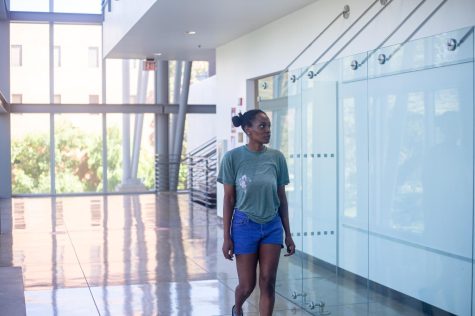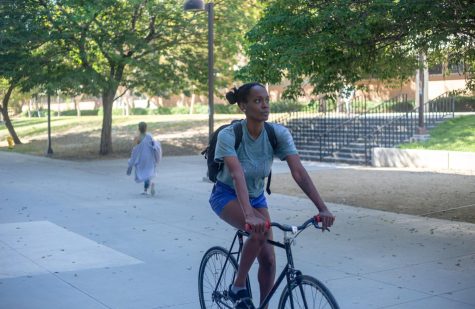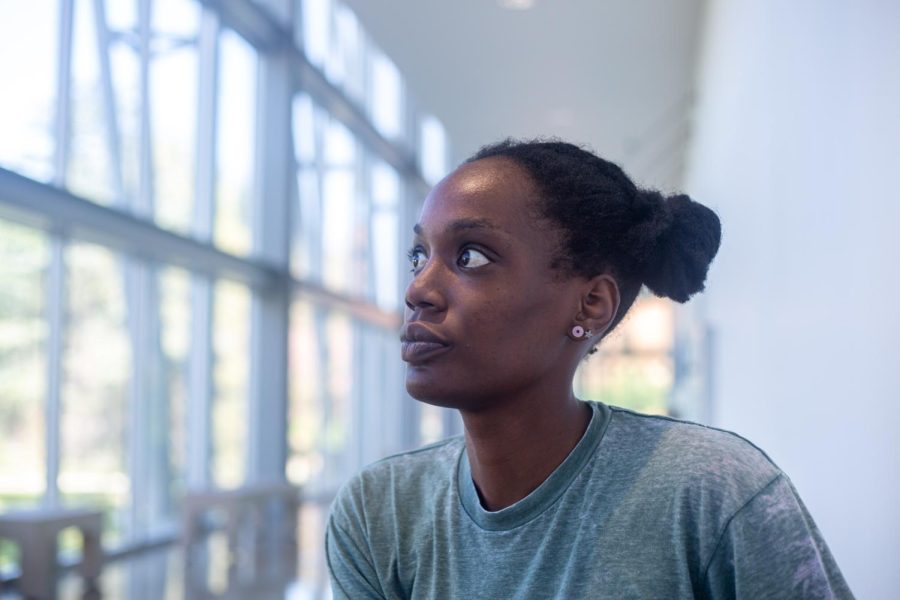Black students navigate mental health amid pandemic
October 8, 2022
The mental health of college students experienced an immense change and shift following the COVID-19 pandemic. Many students had to deal with loved ones falling ill, or working to help support their families. Recent reports show that pandemic-related stress has contributed to the overall decline in the mental health of college students all over the country.
A study conducted by the Pennsylvania State University Center for Collegiate Mental Health reported that 72% of students in college experienced a negative shift in their mental health as a result of the COVID-19 pandemic, while 94% of students reported that the pandemic had negatively impacted at least one aspect of their life.
For Black students at CSUN, the need for mental health resources is promoted and pushed, but the pandemic drastically limited many Black students from their ability to receive the same level of care they had prior.
Black college students reported an overall lack of support with mental health resources from their colleges and universities, with only 24% of Black students stating they have had “mental health services, counseling and emotional or psychological support accessible during the pandemic,” according to an online survey conducted by the Global Strategy Group. Overall, 32% of students reported having access to mental health aid offered by their university.

This disconnect between colleges and their Black students can be attributed to several factors. CSUN physician with the student health center, Dr. Sandra Darden, analyzed data about Black students at CSUN utilizing wellness resources. Darden discovered that the low percentage of Black students seeking health services was attributed to a lack of trust and knowledge of these services, making it a low priority to some students. Efforts to inform more Black students about these programs have helped, but the pandemic halted a lot of progress.
Sydnee Roddy, a senior studying public relations at CSUN, shared how the pandemic impacted her access to mental health resources and the challenges that it presented. Roddy tried to attend the University Counseling Services during the pandemic but could not get an immediate appointment due to how busy they were. Despite this, Roddy still sought other avenues for help and cited her return to campus as a positive impact on her mental health.
“Ever since the pandemic, and we’ve been able to come back to campus and go out and do things more, I feel a lot better. Being back has definitely made a difference in how I feel everyday with getting up and being able to have conversations with people, even when I don’t always want to,” Roddy said.
At CSUN, even with certain aid offered, it can still feel daunting for Black students to prioritize their mental well-being when dealing with other overwhelming, real-life experiences. For many students from low-income communities, the ability to set aside time for their mental health can feel like an impossible luxury.

CSUN junior and television production major Danielle Lee spoke on her journey with mental health in a post-COVID-19 landscape.
“Pre-pandemic situation there wasn’t a lot of support for students in the fact that you don’t know what people’s home lives are like. People might be experiencing homelessness, food scarcity or just lack of support,” Lee said. “The pandemic made a lot of us more independent and it feels good to be able to get back together and as a community on campus.”
As students continue through the school year in person, more Black students will be able to utilize the resources accessible on campus. Whether those resources are through the University Counseling Services or through building community with others, it is important for many to establish those lifelines as they continue to move forward.
Psychology major Lielonie McHenry noted that the biggest help to her mental welfare was coming back and experiencing campus life again.
“During the pandemic I was in a deep depression and I struggled staying afloat while doing schoolwork. I wasn’t motivated,” McHenry said. “But I have really great friends here, and it’s been a huge help to see them again.”
